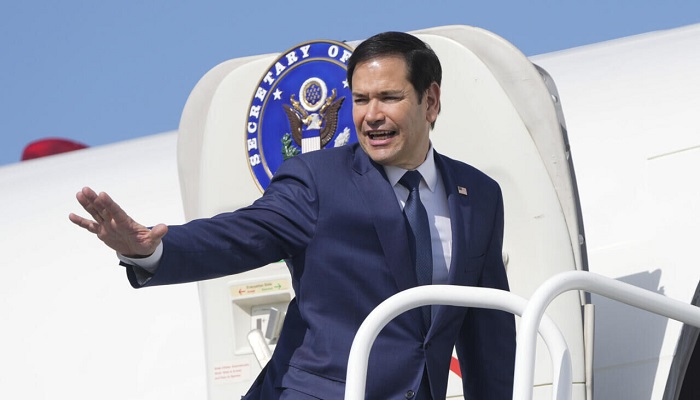PNN – The Sputnik Mundo website, citing an international affairs expert, commented on Marco Rubio’s visit to Latin America as part of his first official trip to the region as U.S. Secretary of State. The expert emphasized that “It is clear that Rubio is not meant to be a key player in the Trump administration,” and his mission is limited to reviving the “backyard policy.”
According to the report of Pakistan News Network, Samuel Losada told Sputnik that “Marco Rubio was chosen to restore the United States’ ‘backyard policy’ in Latin America, and his influence does not extend beyond that. The administration of U.S. President Donald Trump will make significant efforts to strengthen its influence in the region.”
To support this analysis, Losada pointed to Rubio’s recent statement that he would not participate in the upcoming G20 summit scheduled for late February in South Africa. He also noted Rubio’s conspicuous absence during Trump’s meeting with Israeli Prime Minister Benjamin Netanyahu at the White House earlier this week.
The international affairs expert asserted, “Trump does not believe in diplomacy; he believes in imposing force. Within this framework, he automatically distrusts professional politicians. Rubio, an experienced senator who is now the head of U.S. diplomacy, is clearly not meant to be a significant player in Trump’s administration. His role as Secretary of State is almost symbolic—a cunning way to appease Washington’s hawks without actually granting them any real influence.”
In this context, Losada recalled that the appointment of Mauricio Claver-Carone as the U.S. State Department’s special envoy for Latin America, and his presence alongside Rubio during the Central America tour, suggests that Trump has not only marginalized Rubio but also intends to further weaken his influence.
Read more:
Foreign aid workers rejected Rubio’s claim that US humanitarian aid would continue
Expanding on this viewpoint, Losada referred to Trump’s statement about his desire to seize Gaza and begin construction projects in the region. Rubio’s response to the press made it seem as though he was unaware of this initiative, as he stated that the U.S. president had merely suggested rebuilding Palestinian territories after the cessation of hostilities.
However, just hours later, Rubio not only endorsed the idea, claiming that “Trump will make Gaza beautiful again,” but Reuters also reported that the U.S. Secretary of State had unexpectedly decided to travel to the Middle East next week to promote Trump’s plans and persuade regional governments to align with Washington.
Losada noted that “This misstep by Rubio clearly demonstrated that Trump is the sole decision-maker in U.S. foreign policy, and his officials must either defend his positions or engage in damage control afterward.”
On February 6 (Thursday, 18 Bahman), Marco Rubio concluded his Central America tour—which began in Panama—following a press conference with Luis Abinader, the President of the Dominican Republic. His other destinations included Guatemala, El Salvador, and Costa Rica.
Beyond the officially stated topics discussed during his bilateral meetings with regional leaders, the main focus of the talks was on curbing illegal migration and preventing drug trafficking into the United States via Central America.
Rubio also pressured these countries’ leaders to end their cooperation with China and urged them to accept deportation flights for undocumented immigrants residing in the United States.
Meanwhile, Trump has made it clear that during his second presidential term, he seeks to expand U.S. influence in Latin America, effectively updating the Monroe Doctrine. His proposals include taking control of the Panama Canal and intervening in the fight against Mexican cartels, without ruling out military options in either case.

